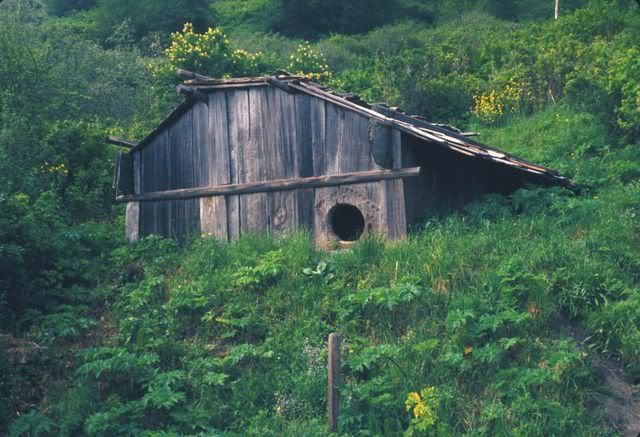 Karuk Tribe: “This is Katimin, the center of our world where Masuhsava (Salmon River) meets Ishkeesh (the Klamath River) The cone shaped mountain near the bottom is Auwitch (Sugar Loaf).”
Karuk Tribe: “This is Katimin, the center of our world where Masuhsava (Salmon River) meets Ishkeesh (the Klamath River) The cone shaped mountain near the bottom is Auwitch (Sugar Loaf).”
Orleans, CA – The Karuk Department of Natural Resources today announced a 1 million dollar grant award from the U.S. Department of Education to the Karuk Tribe to implement the goals of the Píkyav Field Institute to support environmental education for Native Youth.
“Established under the Eco-Cultural Revitalization Branch of the Karuk Tribe’s Department of Natural Resources, the institute is named after the Karuk word píkyav, which means ‘fix it,’ referring to the Tribe’s continuing efforts to restore the earth and its creatures to harmonious balance,” according to a news release from the Tribe.
“We’re heartened by the government’s recognition that this program can affect needed opportunities for our underserved youth,” said KDNR Deputy Director Bill Tripp. “Not only does it hold great promise in the revitalization of our traditional ecological knowledge, practice, and belief systems, we are convinced that it will help improve our youth’s academic performance and college- and career-readiness by reconnecting – or enhancing – their connection to tribal heritage.”
Over the past decade, the Tribe has been working with academic institutions and researchers to successfully integrate traditional ecological knowledge and western science into contemporary management practices. Piloted workshops, seminars and lessons have reinforced this Native science and the perpetuation of cultural heritage, according to the Tribe.
A 5-year USDA-funded Klamath Basin Food Security Grant, led by UC Berkeley’s Dr. Jennifer Sowerwine, allowed the Tribe to develop key projects that were leveraged to secure the new grant award. Among these are the Tribe’s Nanu’ávaha (“our food”) K-12 Curriculum, the Sípnuuk (“storage basket”) Digital Library, Archives and Museum, Native Foods Workshops, and Seasonal Youth Camps.
“We’re very proud that our original objective of piloting a summer field institute supporting experiential learning has come to fruition. In Píkyav, it all comes together – from student field and classroom studies to academic research to on-the-ground eco-cultural revitalization,” reported Sowerwine.
The Píkyav Field Institute is an Office of Indian Education-funded Native Youth Community Project designed to support a culturally relevant, academically challenging, and traditionally holistic environmental education program benefiting the Tribal and non-Tribal students in the Karuk Tribal Service Area, according to the Tribe.
A full-time K-12 Environmental Education Division Coordinator, as well as partially funded positions in Environmental Workforce Development and Higher Education Divisions will help support the Tribe’s vision for supporting one of its most precious resources: the next generation.
“The Indian Boarding School era was one of many factors leading to the inter-generational trauma Native peoples experience today. By incorporating Native American traditional ecological knowledge into the lessons taught in local schools, we hope to mitigate some of the wrongs done to our people in the past,” says Leaf Hillman, Karuk Tribe’s Director of Natural Resources and Environmental Policy. “This effort represents a valuable contribution to Tribal sovereignty.”
“Project objectives include curriculum and cultural sensitivity trainings, further development of culturally-relevant California Common Core Standards-based curriculum, support for students interested in pursuing careers in the environmental sciences, and continued implementation of experiential learning activities grounded in traditional ecological knowledge,” the Tribe said.
Contact: Lisa Hillman, Píkyav Field Institute Program Manager, Karuk Tribe 530-627-3446; karuk.us


Leave a Reply